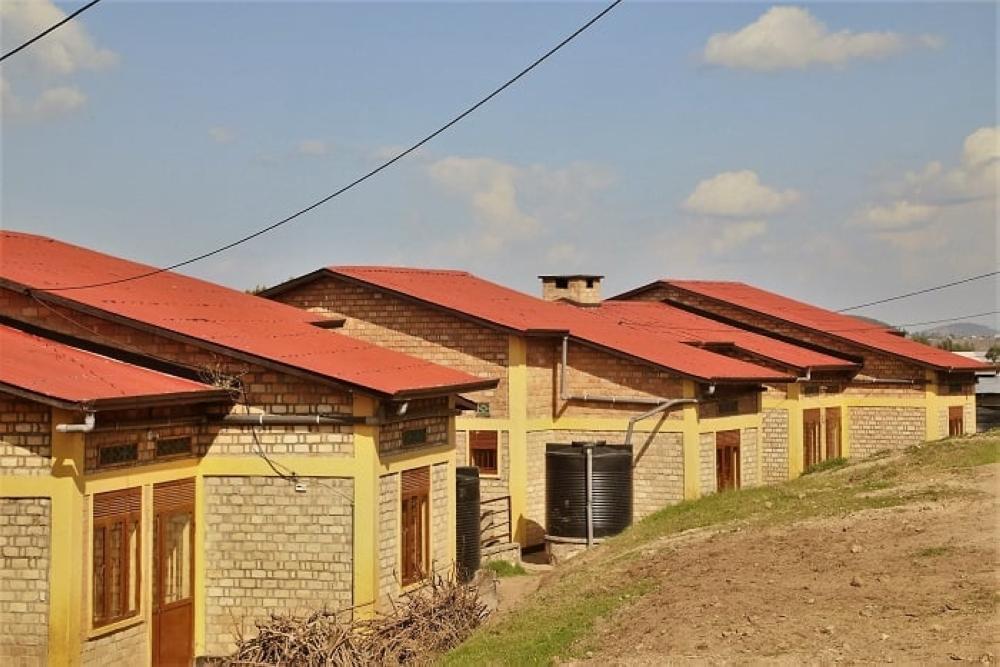Africa-Press – Rwanda. The government has unveiled plans to construct 296 new houses for vulnerable survivors of the 1994 Genocide against the Tutsi.
The houses will be built in the 2025-2026 fiscal year and are part of close to 7,000 houses needed by survivors.
The announcement was made on Tuesday, November 11, by the officials from the Ministry of National Unity and Civic Engagement during a session with the Parliamentary Public Accounts Committee (PAC).
Marie Alice Kayumba Uwera, the Executive Director for National Unity and Community Resilience at the ministry, said the government has allocated Rwf5 billion for the initiative.
“At least 296 new houses will be built this fiscal year, with allocations determined by the urgency of needs in different districts,” Uwera told MPs.
“We are also exploring unconventional construction methods that help reduce costs without compromising quality.”
Kayumba noted that with the unconventional models, the cost of constructing a single house varies across districts, from about Rwf7 million in some areas to as high as Rwf10 million elsewhere, depending on geography, material availability, and labor costs.
She explained that once the use of unconventional construction methods is approved, it will help complete the remaining 6,973 houses and significantly reduce overall costs.
According to Alphonse Rukaburandekwe, Director General of the Rwanda Housing Authority (RHA), the unconventional model under review draws on community participation.
“This approach borrows from Rwanda’s traditional spirit of solidarity, where residents contribute locally available materials and labor,” he explained. “It not only cuts costs but also strengthens ownership and community resilience.”
The Minister of National Unity and Civic Engagement, Dr. Jean Damascène Bizimana, endorsed this approach, citing successful examples.
“In Rusizi District, for example, RPF members built houses worth Rwf9 million each, stronger and more affordable than those elsewhere that cost Rwf20 million,” he said.
“Districts with strong mobilization capacity should be encouraged and supported so that more survivors can access homes.”
The officials emphasized that beyond housing needs, the programme aims to ensure that beneficiaries receive psychological and social support before and after relocation.
“Survivors need to be prepared emotionally and encouraged to maintain their new homes,” said Innocent Ndahiro, a governance and decentralization policy specialist at the Ministry of Local Government. “They should also adopt practices that preserve the buildings and the surrounding environment.”
Ndahiro added that Rwanda already has clear housing guidelines for vulnerable groups, but some local authorities have not consistently applied them. “Our focus now is on compliance and sustainability so that these homes truly improve lives,” he said.
Despite ongoing progress, the housing gap remains significant. Current statistics from MINUBUMWE show that about 30,000 houses require renovation or reconstruction.
However, Minister Bizimana assured lawmakers that the government has decided to integrate survivors into broader national housing programs for vulnerable citizens.
“From now on, survivors will no longer be treated as a separate category,” he explained. “They will be included in the national housing framework alongside other vulnerable Rwandans. This approach reduces construction costs through shared programs.”
In some districts, a single house can cost up to Rwf20 million, while in others, like Bugesera and Kayonza, costs are lower at around Rwf17 million.
Bizimana emphasized that allowing districts to select local contractors or rely on community initiatives will make the program more efficient and affordable.
“When local partners can build at lower costs, more survivors can benefit,” he said.
PAC members welcomed the initiative but urged the government to ensure proper oversight and technical compliance, especially after past concerns about ventilation and construction standards in some homes.
RHA acknowledged these issues and said corrective measures are underway.
For More News And Analysis About Rwanda Follow Africa-Press






